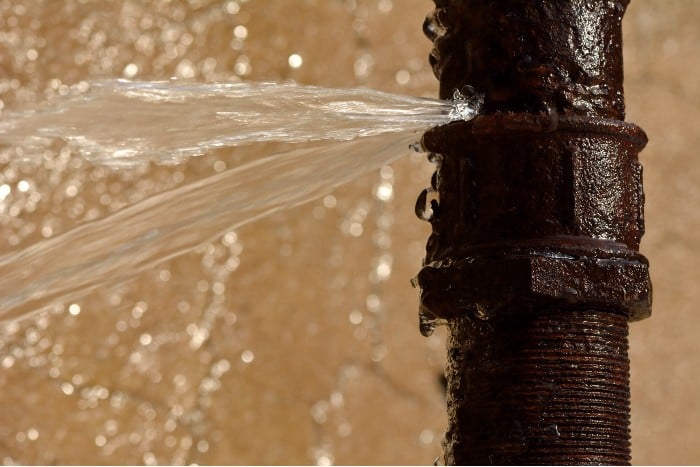Your Residential Common Common Triggers of Leak Problems: Detailed Examination
Your Residential Common Common Triggers of Leak Problems: Detailed Examination
Blog Article
Are you currently hunting for insight around How to detect water leaks in your home?

Leaks not just trigger waste of water but can likewise cause unneeded damage to your home as well as promote unwanted organic growth. By understanding and looking for everyday circumstances that trigger leakages, you can secure your home from future leakages and unneeded damage.
Instantaneous temperature changes.
Extreme temperature level changes in our pipes can create them to expand and also get unexpectedly. This growth as well as tightening might create cracks in the pipes, especially if the temperature are below freezing. It would be best if you kept an eye on how your plumbing works. The visibility of the formerly stated conditions regularly suggests a high danger.
Corroded water supply
As time passes by, your plumbing system ages as well as deterioration such as rust may begin gnawing the pipelines. This might be the root cause of discoloration or warping on your water pipes. This requires an inspection with your plumber instantly. If our plumbing system is old, think about replacing the pipes because they go to a higher risk of corrosion than the newer models.
Defective Pipeline Joints
Pipeline joints can wear away over time, resulting in water leaks. If you have noisy pipes that make ticking or banging noises, especially when the warm water is transformed on, your pipeline joints are most likely under a great deal of stress.
Trespassing roots
Many water leaks start outside the house rather than inside it. If you observe an abrupt decline in water stress, say in your tap, take some time to go out as well as examine your lawn. You may see damp spots or sinkholes in your lawn, which may suggest that tree origins are attacking water lines creating water to permeate out. You can have your plumber look for invasion, particularly if you have trees or bushes near your property.
Poor Water Connectors
At times, a leakage can be caused by loosened pipes as well as pipes that provide your home appliances. In case of a water links leakage, you might notice water running directly from the supply line or puddles around your appliances.
Blocked Drains
Obstructed drains pipes could be irritating and inconveniencing, however they can occasionally wind up triggering an overflow leading to rupture pipes. Keep removing any type of products that might drop your drains pipes that might clog them to prevent such hassles.
All the above are causes of leaks but not all water leakages result from plumbing leakages; some leakages could come from roofing system leakages. All leakages need to be repaired instantly to prevent water damages.
Leaks not just cause waste of water yet can also cause unnecessary damage to your house and also advertise undesirable organic development. By looking and also understanding for daily scenarios that create leaks, you can secure your home from future leaks and unnecessary damage. Today, we will certainly look at six leakage creates that may be creating your pipes to leak.
At times, a leak can be caused by loosened tubes as well as pipelines that provide your appliances. In situation of a water links leakage, you might notice water running directly from the supply line or puddles around your appliances.
How To Check For Water Leak In Your Home
How To Check for Leaks
The average household's leaks can account for nearly 10,000 gallons of water wasted every year and ten percent of homes have leaks that waste 90 gallons or more per day. Common types of leaks found in the home are worn toilet flappers, dripping faucets, and other leaking valves. These types of leaks are often easy to fix, requiring only a few tools and hardware that can pay for themselves in water savings. Fixing easily corrected household water leaks can save homeowners about 10 percent on their water bills.
To check for leaks in your home, you first need to determine whether you're wasting water and then identify the source of the leak. Here are some tips for finding leaks:
Take a look at your water usage during a colder month, such as January or February. If a family of four exceeds 12,000 gallons per month, there are serious leaks.
Check your water meter before and after a two-hour period when no water is being used. If the meter changes at all, you probably have a leak.
Identify toilet leaks by placing a drop of food coloring in the toilet tank. If any color shows up in the bowl after 10 minutes, you have a leak. (Be sure to flush immediately after the experiment to avoid staining the tank.)
Examine faucet gaskets and pipe fittings for any water on the outside of the pipe to check for surface leaks.
Undetected water leaks can happen without the home or business owner even realizing. If you suspect a water leak, but not able to find the source. It is time to contact a professional water leak detection service, The Leak Doctor.
How To Find a Water Leak In Your Home
https://www.leakdoctor.com/blog/How-To-Check-For-Water-Leak-In-Your-Home_AE197.html

I hope you enjoyed reading our post on How to Find Water Leaks. Many thanks for taking a few minutes to browse our article. Feel free to take the time to distribute this entry if you liked it. Thank you for your time. Visit us again soon.
View Website Report this page